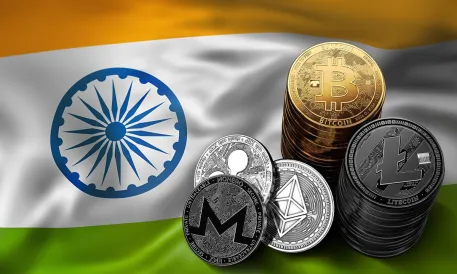AUTHOR : BILLIE EILLISH
Introduction
The advent of cryptocurrencies[1] has sparked a revolution in financial transactions[2] across the globe, and India is rapidly becoming a significant player in this digital landscape[3]. With an increasing number of businesses and consumers exploring crypto payment services, the country stands on the brink of a new financial era. This article explores the current state of crypto payment services[4] in India, their benefits, challenges, and future prospects.
What Are Crypto Payment Services?
Defining Crypto Payment Services
Crypto payment services enable users to transact using cryptocurrencies instead of traditional currencies[5]. These platforms facilitate the acceptance, conversion, and processing of digital currencies, allowing users to buy goods and services seamlessly. Whether for e-commerce or everyday purchases, these services aim to simplify and enhance the transaction experience.
Key Components of the Ecosystem
- Cryptocurrency Exchanges: Platforms like WazirX, CoinDCX, and Unocoin enable users to buy, sell, and trade various cryptocurrencies. These exchanges are vital for converting fiat currency into digital assets.
- Payment Gateways: Companies such as Razorpay and PayU are now integrating crypto payment options into their systems, allowing businesses to accept cryptocurrencies alongside traditional payment methods.
- Digital wallets: wallet providers, like Trust Wallet and Exodus, offer secure storage and management for cryptocurrencies, making it easy for users to send, receive, and transact with digital assets.
Benefits of Crypto Payment Services

1. Speed of Transactions
One of the standout advantages of using crypto payment services is their ability to facilitate near-instantaneous transactions. While traditional banking methods take several days for international transfers, cryptocurrencies confirm transactions within minutes, making them ideal for urgent payments.
2. Lower Transaction Fees
Compared to traditional financial systems, crypto transactions[1] often incur lower fees. By eliminating intermediaries, businesses can significantly reduce payment processing costs, benefiting both consumers and merchants.
3. Enhanced Security
Cryptocurrencies operate on blockchain technology, which uses cryptographic methods to secure transactions. This decentralization and transparency greatly reduce the risk of fraud, chargebacks, and unauthorized transactions, making crypto payments a safer option.
4. Financial Inclusion
In a country where a significant portion of the population remains unbanked, crypto payment services can provide a pathway to financial inclusion. With just a smartphone and an internet connection, individuals can access financial services that were previously out of reach.
Challenges Facing Crypto Payment Services in India

1. Regulatory Uncertainty
India’s regulatory environment for cryptocurrency has been fraught with ambiguity. The Supreme Court overturned the Reserve Bank of India’s (RBI) initial prohibition on banks dealing with crypto businesses in 2020. However, the absence of a clear regulatory framework continues to create hesitancy among businesses considering the adoption of crypto payment solutions[2].
2. Price Volatility
Merchants often hesitate to accept cryptocurrencies as payment due to their well-known price volatility. The value of cryptocurrencies can fluctuate wildly in a short time, making it challenging for businesses to price goods and services consistently.
3. Lack of Awareness and Education
Despite the growing interest in cryptocurrencies, many consumers and businesses remain unfamiliar with how crypto payment services work. This lack of understanding can hinder adoption, as potential users may fear the unknown or find the technology intimidating.
The Future of Crypto Payment Services in India

Increasing Merchant Adoption
As businesses become more aware of the benefits of accepting cryptocurrencies, more merchants will likely integrate crypto payment options. With a younger demographic increasingly favoring digital solutions[3], businesses will need to adapt to meet consumer demands.
Regulatory Clarity on the Horizon
The Indian government is actively working on creating a regulatory framework for cryptocurrencies. As discussions progress, clearer guidelines can enhance consumer confidence and encourage wider adoption of crypto payment services.
Technological Innovations
With advancements in blockchain technology[4], we can expect to see improvements in transaction speed, scalability, and security features. Innovations like layer-2 solutions and decentralized finance (DeFi) applications will likely enhance the functionality and usability of crypto payment services.
Integration with Traditional Finance
The future may also see increased integration between crypto payment services[5] and traditional banking systems. Hybrid solutions that allow users to switch between fiat and cryptocurrencies seamlessly can bridge the gap between the two worlds, offering more flexibility and convenience.
Conclusion
India’s crypto payment services promise to revolutionize transactions by providing speed, security, and lower costs. While challenges such as regulatory uncertainty and price volatility remain, the benefits present a compelling case for adoption. As the landscape evolves, so too will the opportunities for individuals and businesses in the digital economy.
FAQs
Q1: Are cryptocurrencies legal for transactions in India?
Yes, cryptocurrencies can be used for transactions in India. However, they are not recognized as legal tender. The regulatory framework is still being developed, so it’s essential to stay informed about any changes.
Q2: How do I get started with crypto payment services?
To begin using crypto payment services, create a digital wallet, purchase cryptocurrencies through an exchange, and explore merchants that accept crypto payments for your purchases.
Q3: What cryptocurrencies are commonly accepted for payments?
Bitcoin and Ethereum are the most widely accepted cryptocurrencies, but many merchants are increasingly open to accepting various altcoins as well.
Q4: What risks are associated with using crypto payment services?
Risks include regulatory changes, price volatility, and potential security vulnerabilities. Always do your research and choose reliable platforms when using cryptocurrencies.
Q5: Can I obtain a refund for a crypto payment?
Refund policies for crypto payments vary by merchant. Always check the refund policy before making a transaction to understand your options in case you need a refund.




